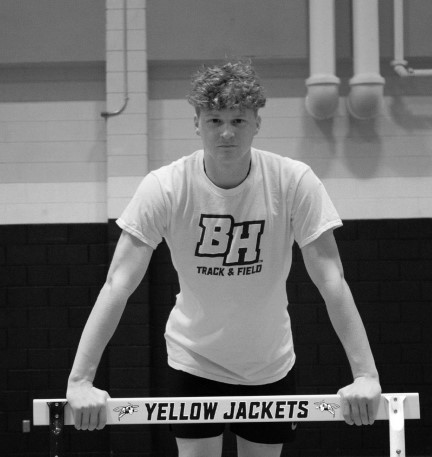It’s 4:30 a.m. and Flynn Johnston wakes up to his alarm ringing next to his bed. He sits up, shuts it off and begins getting ready for work. Today is Tuesday, the busiest day of Johnston’s week. He must be clocked in at the Pak’n’save, his town’s local supermarket, by 5 a.m.
At a quarter to 9, Johnston is sitting in his form class. This class is similar in concept to a homeroom and is attended by year nine students up through year 13 students. After this class, he just has one more until his “morning tea.” This is a short break between his classes. Johnston’s morning tea will be followed by two more classes, lunch and then his final class of the day.
After his final class, Johnston will coach the school’s younger students in football, or soccer, as we know it. Following his coaching, which usually ends about 4:30 p.m., he will have time to eat dinner and relax before his own football practice at 6 p.m. Johnston’s day will finally conclude at 8 p.m., when he is finished with his own training.
But to say a day like this is average to Johnston would be wrong. Tomorrow, he doesn’t have work in the morning. Flynn’s five classes will rotate, meaning he will have a new first class, and will have a different last class of the day. Instead of coaching the younger football team, Johnston will train for track and field, which he refers to as “athletics.”
In New Zealand, Johston’s life is regularly shifting. In several months, though, he will be on a plane headed for Spearfish, where he will begin his college career. He will leave behind winters in August and summers in December to pursue a university degree on the other side of the world.
Johnston had been looking at international options for his future during his last year of high school. He ultimately decided to start his college career in Lincoln, New Zealand. Midway through his first semester, Johnston knew his calling was not there and fully pursued options to come to the U.S. through an agent.
While he had offers coming in for soccer and track and field from a multitude of American universities, Johnston eventually settled on Black Hills State University with an offer to compete in track and field. On Aug. 18, Johnston’s 20th birthday, he arrived on campus.
Johnston started playing soccer when he was four but adjusting to athletics in the U.S. proved to be his first big culture shock. Sports teams at BHSU have practice five days a week, every week.
“We were on the track twice a week…long runs on Sunday, and then gym work twice a week, so it’s not quite at the level that it is here,” Johnston said.
His practices now consist of training on the track every day, with lifting three days a week – something he is still getting used to.
What has excited him the most about joining the track and field team at BHSU is everyone he has gotten to meet and quickly befriend.
“When you’re on a sports team, you bond a lot quicker…especially when you’re going through the harder training,” Johnston said.
“You can look over to the guy who’s lying on the ground next to you, and you’re in agreement – this sucks.”
While Johnston is getting used to a new training regime and education system, the geographical change has had the largest effect on him. Back home, he was always within a half hour drive of a beach. Since he is now landlocked, he substitutes his usual beach time with trips to the lake.
Tramping – or hiking – another of his favorite outdoor activities, Johnston is able to continue to do in South Dakota. His grandfather has been in a tramping club for as long as he can remember, and it became a near weekly family activity. He’s been on all sorts of trails across New Zealand, from beginners trails to backpacking trails.
However, outside of the actual hiking itself, this activity has become vastly different for him.
Much of the plant life in the wilderness he is used to is shrubbery and grasses. The wildlife he catches glimpses of during his hikes in New Zealand are birds of all shapes and sizes. The hills are shallow, allowing a hiker to see for miles.
Here, however, Johnston feels like he is getting lost when he goes out on a hike. He looks around and no longer sees open fields but endless trees reaching up into the sky.
When Johnston is not enjoying time training or being outdoors, he is around campus or out in the city of Spearfish. He looks around, taking in the cultural differences. Chatting with people here has been one of his more interesting experiences. Outside of being asked if he’s from Australia a couple of times, Johnston is relentlessly teased for his New Zealand colloquialisms.
“I know a lot of my slang that I’ve just got used to whiffling out, I bring it out and everyone’s just looking at me trying to figure out what I’ve just said,” Johnston said. “He has heard quite a few giggles after referring to different foods as “chips.”
Across all the new experiences and the cultural differences he is growing accustom to, Johnston feels he has finally found the place he’s been searching for. Nonetheless, acclimating to his new life in South Dakota has not been easy.
“I think I’ve had to take a jump up maturity wise…it’s one thing to move around in your own country, but once you make the jump here, you have to grow up a lot more,” Johnston said.


